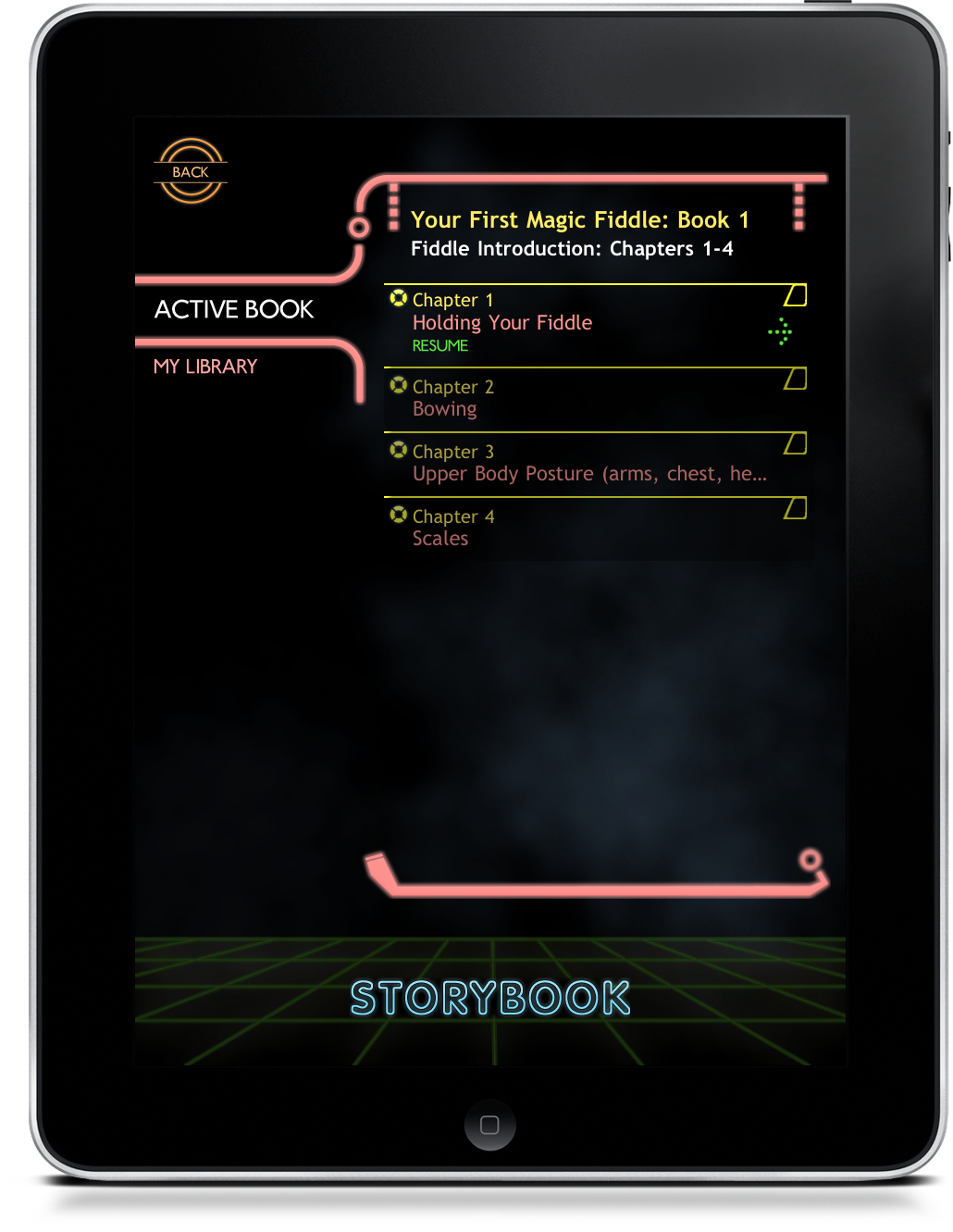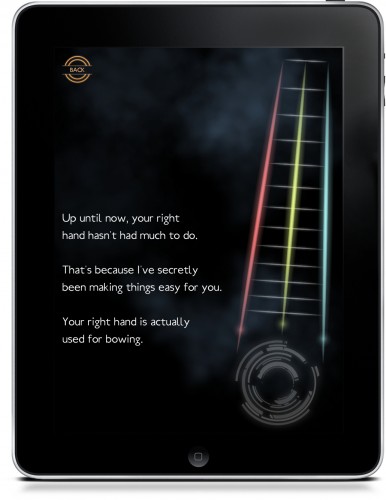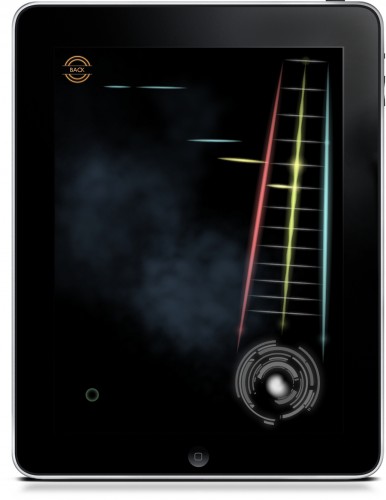
Stand back Ocarina, there’s a new Smule in town. Magic Fiddle is its name, and it’s the most fun I’ve had for $2.99 in a long, long time.
When I was downloading Smule’s Magic Fiddle app for my iPad, I was expecting some sort of agility-based mini-game posing as virtual instrument, à la Tap Tap Revenge, or something similar to Guitar Hero. In fact, I’ve heard Magic Fiddle referred to as “a high-brow Guitar Hero,” and even as “Violin Hero,” but these comparisons really aren’t fair at all.
Disclaimer: I’m not a Guitar Hero fan. At all. If you’ve seen the Guitar Hero episode of South Park, I’m Randy Marsh; the guy who can actually play the guitar and doesn’t get what’s so cool about chasing little dots across a simulated fretboard. Though I have played the game on several occasions, I’ve always viewed it as an evolved version of Pong, or more to the point, music for people with no musical talent.
While Magic Fiddle follows similar principles, the virtual violin instrument is downright.. musical! And like a real violin, the virtual instrument isn’t very forgiving either. True to form, the instrument is fretless – there are no frets separating each note from each other along the fretboard, so if your fingers aren’t in the proper place, the notes will be sharp or flat. Also, the sensitivity of the touch screen allows for some pretty amazing vibrato and portamento slide techniques, which is very cool when you’ve mastered it a bit, but very painful (hilariously so) to listen to when you’re first getting started.
Once you get your left-hand technique down, the app’s tutorials move you on to how to “bow” using your right hand, and all of the nuances available implied by the iPad’s sensitive touchscreen. The nature of the interface gives you far more control over the instrument’s “bowing” than you’d expect.
The instrument requests that you give it a name, and it communicates with you via scrolling text. It will say things like: “Why do I care about scales? Actually, I don’t. Neither did John Cage, but you should.” (Fans of MailChimp’s snarky sense of humor are going to love this app.)
The tutorial process is a hoot. Smule’s developers have a great sense of humor, and the experience of advancing through the four-chapter “Storybook” tutorials is not unlike working with a goofy teacher. There are even scales to learn and a bit of music theory, which isn’t as dry as it sounds. (Though I must admit that when I was practicing my scales the first time around, I looked up from the iPad to find my wife staring at me in utter horror. My initial attempts to coax music out of this app resembled the—imagined—sound of cats being tortured.)
Once you get past the tutorials, the game aspect of the app begins to surface, grading your performance and technique as you cycle through a library of classical and contemporary compositions. The app also offers a free-form “Solo” mode, which allows you to simply practice your musicianship or even compose your own music if you’d like.
As with Guitar Hero, your increasing skill helps you unlock medals, and accrue points, but unlike Guitar Hero, which is largely a speed and dexterity proposition, Smule’s Magic Fiddle is cerebral and stimulates the creative juices. Run to the iPad App Store and get your copy of Magic Fiddle now. More fun than karaoke, more useful than a virtual ocarina. Ask your family to bring their iPads to dinner this holiday season.
I’m very excited to get together with some other iPad owners for a digital chamber quartet jam session. Who’s game?








